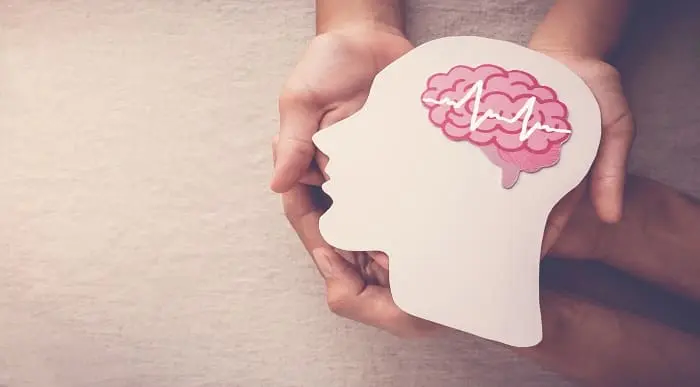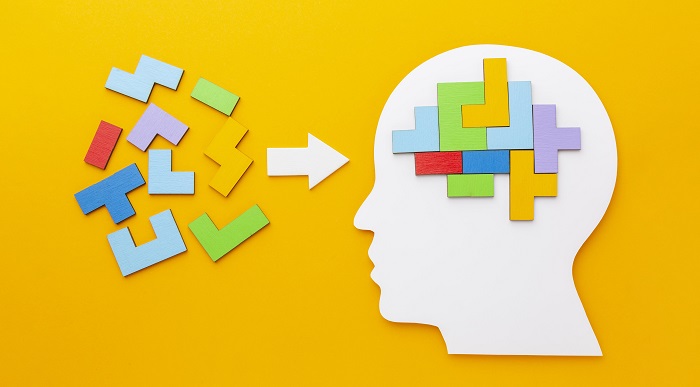Personal Development
How to be Happier – 27 Ultimate Life Hacks
How to be happier? Happiness is an elusive thing for many of us. Some think that materials don’t bring happiness. Others think that spiritual richness is the key to happiness. Well, none of them is lying. It’s actually a blend of the two. Having an unlimited supply of either one will never let you truly be happy ever,
As such, you need to take care of both the materialistic aspect of your life as well as the richness of your spirit to be happy.
So, happiness, contrary to common belief, does not appear by magic. It isn’t even something that happens to you. It is something you can cultivate by gradually developing some good habits.
Happiness depends on our choices and activities. Increasing happiness can be developed by focusing on certain behaviours. Even in difficult circumstances, we can modify how happy we are by changing the way we approach our life.
So, let’s discover the key to happiness.
But this blog will remain incomplete if we do not address the most crucial phrase- ‘happiness.’ It may sound simple. However, if you even look up the dictionary definition, you’ll understand why happiness is so much broader than some of us think.
Let’s begin with that.
Table of Content
- What is Happiness?
- 1. Emotional Balance
- 2. Life Satisfaction
- Why is Happiness Important in Your Life?
- How to be Happier: What Science Tells Us
- Control Your Stress Levels
- Enjoy Yourself
- Maintain a Healthy Lifestyle
- Discuss and Share
- Enhance Your Resilience
- Smile
- Express Gratitude
- Offer Compliment
- Breathe Deeply
- Acknowledge the Unhappy Moments
- Maintain a Journal
- Try Not to Compare Yourself to Others
- Declutter
- Visit Friends
- Make a Weekly Schedule
- Ditch Your Phone
- Spend Some Time in Nature
- Explore Meditation
- Develop a Self-care Routine
- Take Yourself Out
- Take Care of Your Body
- Let Go of Grudges
- Plan a Trip
- FAQ
- Conclusion
- What to Read Next:
What is Happiness?
According to the Oxford English Dictionary, happiness or being happy is defined as feeling or expressing contentment or pleasure. In the perspective of mental or emotional states, it refers to positive or pleasant emotions ranging from contentment to intense joy. Other forms include –
- life satisfaction,
- well-being,
- subjective well-being,
- and flourishing.
As happiness is such a wide concept, psychologists and other social scientists often refer to it as “subjective well-being” when discussing this emotional state. It focuses on an individual’s overall personal feelings about their life in the present.
Two important aspects of happiness (or subjective well-being) are:
1. Emotional Balance
Everyone has both positive and negative emotions, sensations, and moods. Happiness is often associated with having more pleasant sensations than negative ones.
2. Life Satisfaction
It refers to how pleased you are with many aspects of your life, such as your relationships, job, achievements, and other things that you value.
The following are some major indicators of happiness or a happy life:
- Feeling as if you are living the life you want.
- Going with the flow and being open to accepting life as it comes.
- Having the impression that your life is going well.
- Having positive, healthy connections with others.
- Feeling as if you have achieved (or will achieve) your life goals.
- Feeling happy with your life.
- Having more positive thoughts than negative thoughts.
- Being open to new experiences and thoughts.
- Practising self-care and treating yourself with love and compassion.
- Feeling as if you are living your life with meaning and purpose.
- Wishing to share your pleasure and happiness with others.
Now, let’s move on to see why happiness matters most.
 Are you interested in Emotional Intelligence Course?
Are you interested in Emotional Intelligence Course?
Why is Happiness Important in Your Life?
To better understand, consider the following seven reasons why happiness is so vital in life.
Happy people are:
| more successful |
| maintain better relationships |
| have less stress |
| live longer lives |
| are more creative |
| are healthier |
| are more generous |
So, considering the positive aspects of overall happiness in your life, it’s well worth learning tips for being happy.
Without further ado, let’s get started with the most important topic of how to make yourself happier.
How to be Happier: What Science Tells Us
For thousands of years, people have been dependent on ancient wisdom for insights into how to live a happier life. Modern science has now put this to the test, and study has found some practical steps you can undertake on how to be happy in life, “always.”
So, absolutely, you can learn to be happy — or, at the very least, happier.
Although many people believe that happiness comes from being born wealthy or beautiful or spending money on luxurious things, or living a stress-free life, the fact is that those who have riches, less stress, or beauty are not happier on average than people who do not.
Happy people appear to intuitively understand that their long-term happiness is the total of their life choices, and their lives are constructed on the following pillars:
- Spending time with family and friends.
- Appreciating what they have and remaining optimistic.
- Having a sense of purpose.
- Being present in the moment.
Try some below-mentioned methods to help you be happier, more in control, and able to cope better with life’s ups and downs.

Healthy Families – Learn How To Be Happy
- Accredited Courses
- Tutor Support Included
- 3 Installment Plan at checkout
- 14 Days Money Back Guarantee
Control Your Stress Levels
- Find measures to lessen stress in your life, such as learning a few time-management techniques.
- Include regular exercise and time for yourself. These are great initiatives. Taking control of your schedule in this manner may significantly reduce stress.
- Breathing exercises might help if you are experiencing anxiety in addition to stress. Try out this stress-relieving breathing practice.
Enjoy Yourself
Doing something you enjoy is beneficial to your emotional well-being. This is one of the best ways to make yourself happy. Simple things such as-
- watching sports with a buddy,
- having a soak in the bath,
- or meeting up with pals for coffee
– can all help to brighten your daily life.
Furthermore, doing something you’re good at, such as cooking or dancing, can be a great way to have fun and feel accomplished.
Avoid doing activities that seem fun at the time but make you not feel good later, such as
- drinking too much alcohol,
- or eating junk food.
Enhance Your Self-esteem
Self-esteem is how you feel about yourself.
The easiest method to boost your self-esteem is to treat yourself in the same manner you would treat a close friend: positively but honestly.
Do not knock yourself down thinking such as “I’m so stupid for not getting that job,” Instead, just think, “Would I say that to my best friend?”
Instead, tell yourself something encouraging, such as, “I’m a bright person; I’ll get the next job.”
Maintain a Healthy Lifestyle
Limit Your Alcohol Consumption
It’s tempting to consume alcohol when situations are tough because it “numbs” painful sentiments. But, it has the potential to intensify some emotions and make you feel furious or aggressive. It can also worsen your depression.
Have a Well-balanced Diet
Making appropriate dietary choices can help you feel emotionally stronger. Doing something good for yourself will boost your confidence.
A healthy diet also helps your brain and body perform more effectively. For example:
- Carbohydrates cause the release of serotonin, a “feel-good” hormone. Simply limit simple carbohydrates — meals heavy in sugar and starch — because having these will make the energy boost fleet, and next, you’ll collapse.
Instead, Complex carbohydrates, such as
- vegetables,
- beans,
- and whole grains
– can help you avoid a crash while still supplying serotonin.
- Protein-rich foods include poultry, lean meat, lentils, and dairy. Protein-rich diets stimulate the release of dopamine and norepinephrine, which boost energy and concentration.
- Omega-3 fatty acids, such as those present in fatty fish, have been shown to have anti-inflammatory properties that extend to your general brain health and, as such- your mental health, too, to some extent. You might chat to your doctor about supplementing if you don’t consume fish.
- High-processed or deep-fried foods, as well as missing meals, might make you feel depressed.
Do Some Exercise
Regular exercise releases hormones called endorphins. These hormones bind to pain receptors in your brain, assisting in reducing your feeling of pain. Endorphins, like morphine, produce a pleasant sensation in the body. Even moderate exercise causes your brain to produce hormones that improve your mood. It can-
- improve your sleep,
- give you more energy,
- and keep your heart healthy.
Discover how exercise can aid in the treatment of depression.
Do things that make you happy. Choose an activity that you enjoy. It can be beneficial to do it with a companion or while listening to music. Adults should strive for 150 minutes of physical activity every week.
Consider the following workout suggestions:
- Every night after supper, go for a walk around the block.
- Sign up for a beginner’s yoga.
- Begin your day with stretching for 5 minutes.
Get Adequate Sleep
The average amount of sleep accepted for an adult for their body and mind to relax 7 to 8 hours.
Before bed, make a “to-do” list for the next day to help organise your thoughts and cleanse your mind of any distractions.
Communication is essential, whether with a friend, family member, or therapist. Communicating allows you to release stress rather than hold it inside. It helps you connect with others and strengthen your relationships. Many people feel that talking to a therapist about their problems is really beneficial.
Enhance Your Resilience
Resilience aids you in dealing with the ups and downs of life. Making something positive out of adversity strengthens your resilience.
- Starting a support group to aid others,
- or creating something artistic out of negative experiences, such as writing, painting, singing etc.
– can help you express your emotions and get through difficult times.
Smile
When you’re happy, you tend to smile. However, it is a two-way street.
- We smile because of being happy, and smiling causes the brain to produce dopamine, making us even more happier.
- Though not totally conclusive, researchers discovered that the connection between smiling and happiness could be ascribed to the “facial feedback hypothesis.” It states that facial expressions may have a modest influence on emotions.
That doesn’t express that you have to walk around always with a phoney smile on your face. But the next moment you’re feeling down, try to smile and see what happens. Besides, try starting each day by smiling at yourself in the mirror.
Express Gratitude
Being appreciative improves your mood and provides other benefits. A two-part study, for example, discovered that cultivating gratitude can have a considerable influence on feelings of hope and happiness.
- You may try beginning each day by expressing gratitude for at least one thing. This may be done while brushing your teeth or while waiting for your snoozed alarm to go off.
- Consider keeping an eye out for nice aspects of your life as you go about your day. These can be significant events, such as discovering that someone loves you or receiving a well-deserved promotion.
- They can also be little gestures, such as a coworker offering you a cup of coffee or a neighbour waving to you.
Offer Compliment
Research shows that kindness can assist improve your general well-being. Giving a genuine compliment is a quick and an easy way to brighten up someone’s day while increasing your pleasure.
- Catch the person’s attention and say it with a smile so they know you mean it. You might be surprised at seeing you happy at the same time.
- If you wish to compliment someone on their physical looks, do so respectfully.
Breathe Deeply
You’re tense, your shoulders are stiff, and you’re afraid you’re going to “lose it.” We’ve all experienced it. To calm yourself down, slow breathing and deep breathing exercises can help alleviate stress, according to research.
When you’re feeling anxious or at your wit’s end, follow these steps:
- Shut your eyes. Try to imagine a pleasant recollection or a lovely location.
- Inhale slowly and deeply through your nose.
- Exhale slowly via your mouth or nose.
- Repeat this method multiple times until you feel yourself relaxing.
- If taking a deep breath is difficult for you, try counting to 5 in your brain with each inhale and exhale.
Acknowledge the Unhappy Moments
Although having a cheerful attitude is typically beneficial, awful things do happen to everyone. It’s simply a fact of life. If you receive terrible news, make a mistake, or are simply feeling down, don’t attempt to pretend you’re pleased.
- Realise your dissatisfaction and allow yourself to feel it for a minute.
- Then shift your attention to what caused you to feel this way and what it could take to heal.
- Would a deep breathing practice be beneficial? A long walk outside? Discussing it with someone?
- Allow the time to pass and focus on yourself. Remember, no one is always happy.
Maintain a Journal
A diary is an excellent tool for-
- organising your ideas,
- analysing your feelings,
- and making goals.
You don’t have to be a literary genius or a prolific writer. It may be as basic as scribbling down a few ideas before bed. If writing certain things makes you anxious, you can permanently destroy them when you’re done.
Try Not to Compare Yourself to Others
Comparing yourself to others is very easy, whether it’s on social media, at work, or even in a yoga class. The end result(?), you may-
- feel more dissatisfied,
- have reduced self-esteem,
- and even suffer from despair and anxiety.
It takes discipline to stop comparing yourself to others, but it’s well worth it for the sake of inner peace and pleasure.
- Start with some of the other suggestions on this list, such as deep breathing and writing, to help focus your attention inside yourself.
- You might also chat with a therapist for some perspective.
Declutter
Decluttering can be a great effort, but putting up only 20 minutes each week may have a significant impact.
What can you accomplish in 20 minutes? Lots.
- Set up a timer for 15 minutes on your cellphone and dedicate that time to tidying up an area of your room, such as your wardrobe or that out-of-control junk cabinet.
- Put everything back in its proper place and eliminate or give away any excess clutter that is no longer serving you.
- To keep things simple, create a separate box for handouts to avoid adding to the clutter.
- Use the extra 5 minutes to take a quick walk through your living space and remove any stray objects that come into your path.
You may use this method once a week, once a day, or whenever you feel your space is out of hand.
Visit Friends
Making new acquaintances as an adult might feel nearly impossible. Actually, it is not about the number of friends you have. It’s all about establishing meaningful relationships, even if they’re with only one or two individuals.
- Consider joining a local volunteer group or taking a class. Both can assist you in meeting good-minded people in your neighbourhood. They’re probably seeking friends as well.
Companionship does not have to be confined to human beings. Pets can also offer similar benefits, according to multiple studies.
Make a Weekly Schedule
Do you feel like you’re flailing about? At the end of each week, make a simple list for the next week.
Even if you don’t stick to the plan, scheduling time to-
- do laundry,
- go grocery shopping,
- or focus on assignments at work
-might help you relax.
You can purchase a sophisticated organiser or software, but a sticky note on your desktop or a piece of paper in your pocket can be enough.
Ditch Your Phone
There is emerging evidence that heavy phone use might cause brain alterations and negatively affect your mood, with one review indicating more substantial intellectual and emotional abnormalities in teenagers and young adults.
- Turn off all electronics and put your headphones away for at least one hour once a week.
- They’ll still be there for you if you need them afterwards.
Spend Some Time in Nature
A study shows that spending 30 minutes or more each week in green areas can help decrease blood pressure and the risk of developing depression.
Explore Meditation
There are several meditation techniques to try. They might include
- movement,
- concentration,
- spirituality,
- or a mix of the three.
Meditation does not have to be difficult. It might be as easy as sitting quietly for 5 minutes with your own thoughts. Even the already described deep breathing techniques may be used as a type of meditation.
Top Courses of this Category
Develop a Self-care Routine
In today’s fast-paced environment, it’s easy to forget self-care. However, finding as much time as you can to nourish yourself is crucial in supporting your body’s obligations of transporting your thoughts, passions, and spirit through this world.
Take Yourself Out
You don’t have someone to go out with? So, what rule says you can’t go out by yourself? Consider
- going to your favourite restaurant,
- seeing a movie,
- or taking that trip you’ve always wanted to take.
Even if you’re a social butterfly, making time for yourself may help you reconnect with the things that make you happy.
Take Care of Your Body
As you develop behaviours to boost your happiness, it is crucial to follow up with regular consultations to assist you in caring for your body, such as:
- seeing a primary care physician annually,
- discussing and addressing any chronic health concerns with a healthcare provider and seeing suggested specialists if required,
- seeing a dentist for an oral cleaning and dental exam, and following up as needed,
- and getting your vision checked.
Let Go of Grudges
Examine your interpersonal interactions. Do you carry any animosity or malice against anyone? If this is the case, consider reaching out to them in an attempt to bury the hatchet.
There is no need for reconciliation. You might simply need to call it quits and move on.
Plan a Trip
In one study, researchers looked at stress and heart rate in relation to vacationing. They discovered that not only did the vacation itself lower stress but so did the weeks preceding it. This is one of the great ways to be happy.
FAQ
What makes someone truly happy?
Love, in any form, makes our lives happier. Healthy relationships with friends, family, and significant others can enhance and add joy to your life.
What is a good mood booster?
The below-mentioned tips can be a good mood booster for all. These can be done by
- Consuming plenty of whole grains, lean meats, veggies, fruits, beans, and nuts,
- interacting with others,
- discussing troubles or worries with a friend or family member,
- participating in community and volunteer activities to help others etc.
What makes a girl happy?
Compliments make any girl feel valued. When you see anything good about your girl, whether it’s her smile or how she smells, compliment her frequently. These compliments will undoubtedly please her.
Conclusion
Happiness is a great goal to have, and it’s something you’ll have to strive towards every day by stepping outside of your comfort zone. Of course, being happy isn’t something you attain and then hold onto. It’s a series of decisions you make every day. After going through the above-mentioned tips on how to be happier, we can assume that you will now be able to begin your path by fostering positivity in your life and living your life in a way that feels good to you and getting happier day by day.
What to Read Next:















